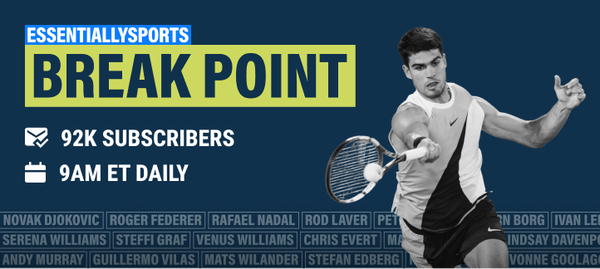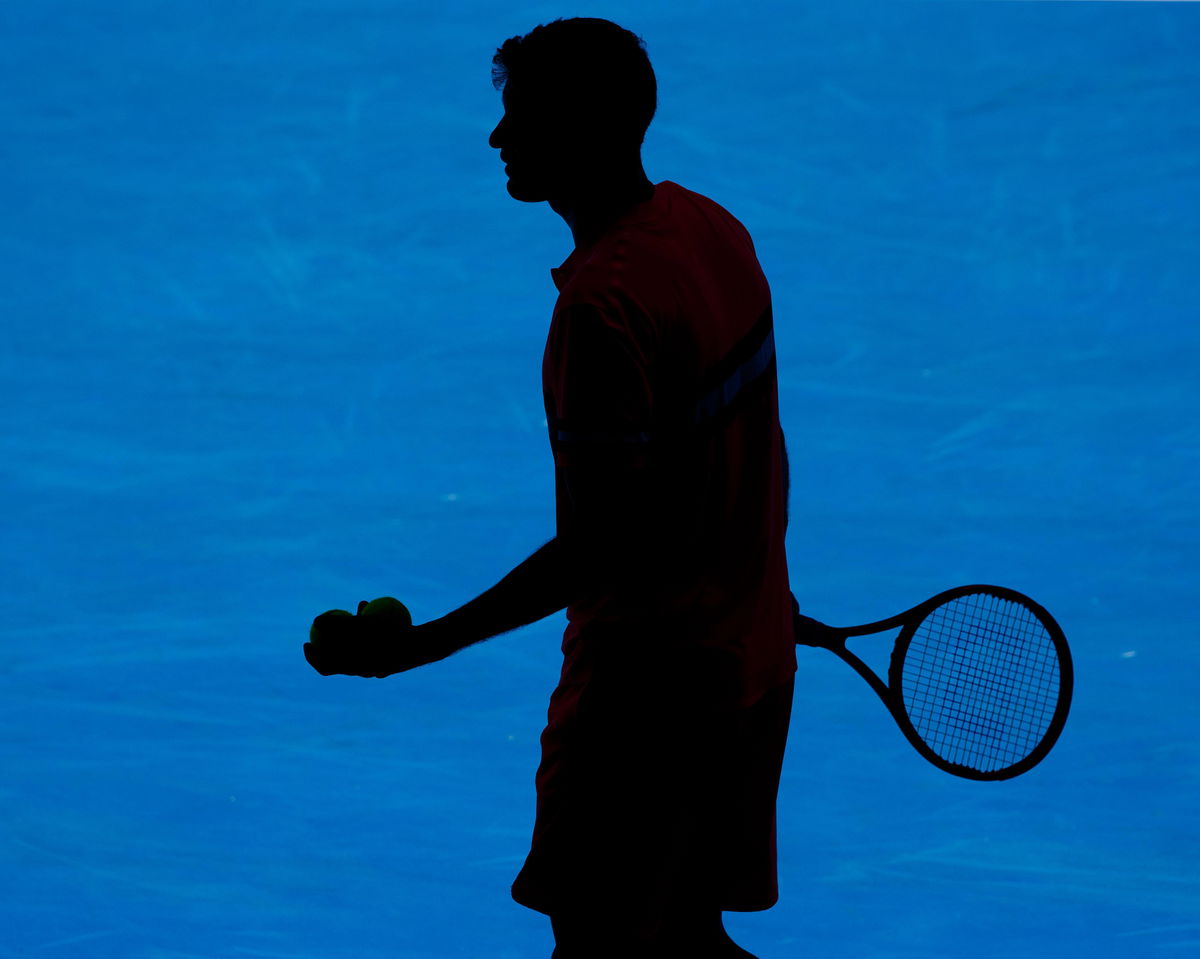
Imago
GRIGOR DIMITROV (BUL), Silhouette,Schatten,von oben Tennis – Australian Open 2018 – Grand Slam / ATP Tennis Herren / WTA Tennis Damen – Melbourne Park – Melbourne – Victoria – Australia – 19 January 2018. *** GRIGOR DIMITROV BUL silhouette shadow of top tennis Australian Open 2018 Grand Slam ATP WTA Melbourne Park Melbourne Victoria Australia 19 January 2018 Copyright: xJuergenxHasenkopfx

Imago
GRIGOR DIMITROV (BUL), Silhouette,Schatten,von oben Tennis – Australian Open 2018 – Grand Slam / ATP Tennis Herren / WTA Tennis Damen – Melbourne Park – Melbourne – Victoria – Australia – 19 January 2018. *** GRIGOR DIMITROV BUL silhouette shadow of top tennis Australian Open 2018 Grand Slam ATP WTA Melbourne Park Melbourne Victoria Australia 19 January 2018 Copyright: xJuergenxHasenkopfx
Ugo Blanchet’s incredible journey at the 2025 US Open has caught the attention of tennis fans. As the World No. 184 and a qualifier, he fought hard through two tough matches to make it to the third round of a Grand Slam for the very first time in his career. He’s had quite the amazing campaign, highlighted by a thrilling five-set win against 16th seed Jakub Mensik. He called the match “incredible,” sharing that it was the kind of moment every player dreams about when they first pick up a racket.
Watch What’s Trending Now!
This win was especially rewarding for the Frenchman, who just a few years back was ranked outside the Top 800 and had really thought about stepping away from the sport to ease the financial strain on his parents. However, his time in New York wrapped up in the third round with a straight-sets loss to the solid 21st seed Tomas Machac.
Blanchet acknowledged, saying, “I played against a better player than me. You can find mitigating circumstances on my side, but he was better than me, he plays really well, he’s hard to maneuver.” Even though he was proud of his breakthrough performance, Blanchet’s departure faced an all-too-familiar issue these days: a surge of negativity on social media.
ADVERTISEMENT
According to We Love Tennis, the Frenchman spoke about this openly, sharing a surprisingly thoughtful and positive take on the negative messages. He said, “There’s a lot of hatred being unleashed. Things have been put in place by tournaments, even by Instagram. You can delete words. Well, there, obviously, they found a lot of words that I hadn’t banned (smiles). It makes me laugh more than anything else, it relaxes me. I tell myself that there are people in a worse state than me, it almost makes me feel good.”
Blanchet points out that there are tools available to filter and delete specific words, but it seems like the hateful users always manage to find ways around these safety measures. His experience really adds to what so many athletes in different sports are saying about needing better and more effective solutions.
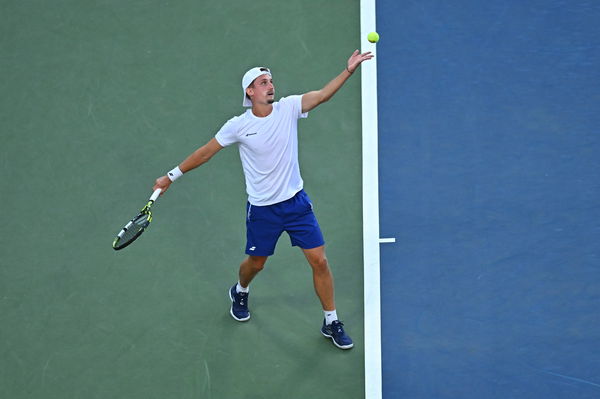
Imago
US Open – Second Round Ugo Blanchet FRA during his second round match at the 2025 US Open at Billie Jean National Tennis Center in New York City, NY, USA, on August 27, 2025. Photo by Corinne Dubreuil/ABACAPRESS.COM New York city United States PUBLICATIONxNOTxINxFRAxUK Copyright: xDubreuilxCorinne/ABACAx
In the end, Ugo Blanchet’s journey at the US Open isn’t just about his athletic success; it’s also a great example of mental strength. When faced with unfair criticism, his laughter and easygoing attitude are way more impactful than any comeback could be. It shows that his true strength lies not just in his skills but in how he thinks. But you know, this whole social media hate thing isn’t exactly new, and quite a few other tennis stars have spoken up about it in the past too.
ADVERTISEMENT
ADVERTISEMENT
The same issues existed way before the 2025 US Open
Ons Jabeur once opened up about the emotional impact she feels after tough match losses. It’s not just the disappointment that gets to her; it’s also the flood of hateful messages that come afterward. She discussed how, after a loss, she looks at her phone and finds a bunch of messages waiting for her—some are nice, but a lot are pretty angry or blaming.
On the Nothing Major podcast, Jabeur really opened up: she pointed out the strong connection between online abuse and the betting culture in tennis. She pointed out that players, particularly those just starting out, deal with a lot of negativity, and it’s a problem that often gets ignored.
Top Stories
Naomi Osaka and Antonia Ruzic Refuse to Continue Australian Open Match- Here’s What Happened

Coco Gauff Makes Heartfelt Admission After $150K Donation for Marginalized Students
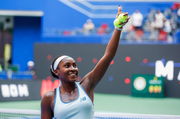
Elsa Jacquemot’s Coach Walks Out After Bizarre Mid-Match Confrontation at Australian Open
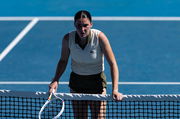
“Hard Being a Black Woman”: Coco Gauff on Donald Trump’s Administration
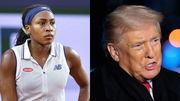
What Is Ben Shelton’s Ethnicity, Religion, and Nationality? Exploring His Family Roots & Background

“Obviously, some players are experiencing it more than others. Young players are coming up, and they don’t know how to deal with social media abuse. I think it is an important topic to address and definitely maybe changing the betting system that is happening around the betting community. I do get a lot. Some things are very, like, very extreme. But I got used to it, and I would not say I don’t care. I obviously do care. At the end of the day, I remind myself, these people are hopeless and behind the screens,” said the Tunisian tennis player.
ADVERTISEMENT
Jabeur shared her thoughts not just about her own journey but also showed understanding for other players like Iga Swiatek, who have faced similar criticism after their losses. She emphasized that the issue isn’t just social media, but the culture that fosters all this negativity.
ADVERTISEMENT
ADVERTISEMENT
ADVERTISEMENT
